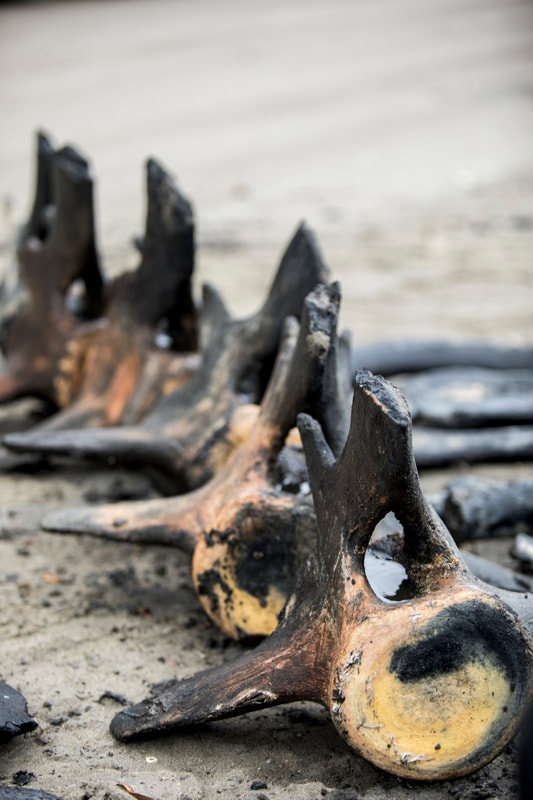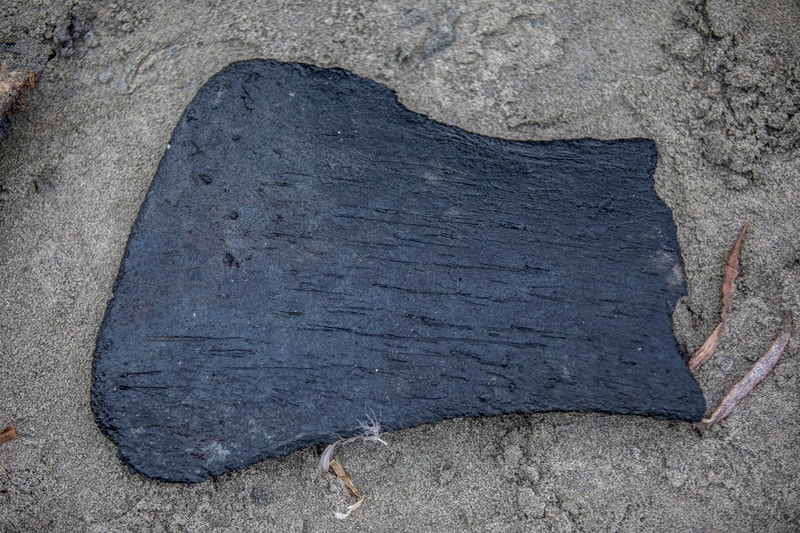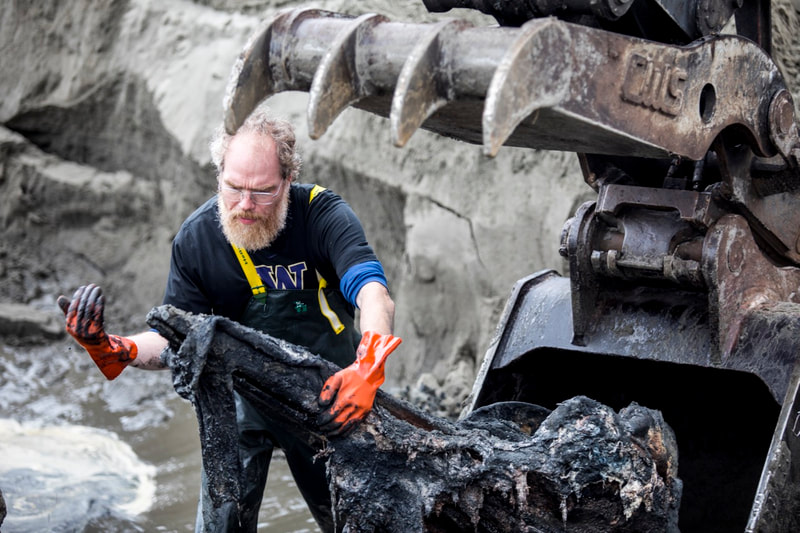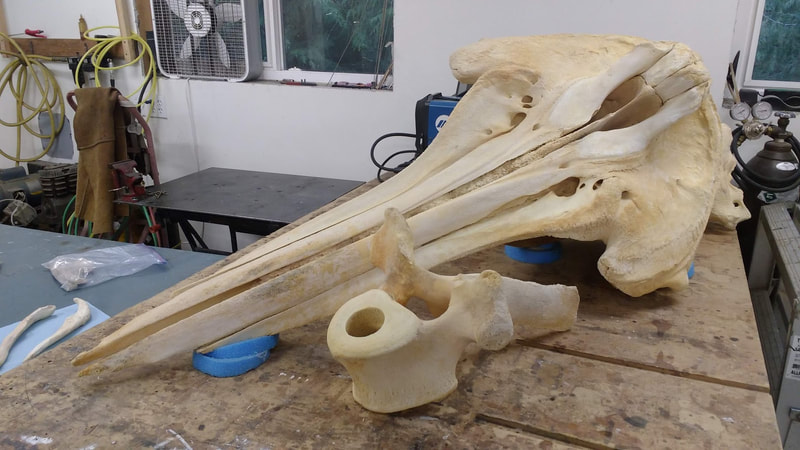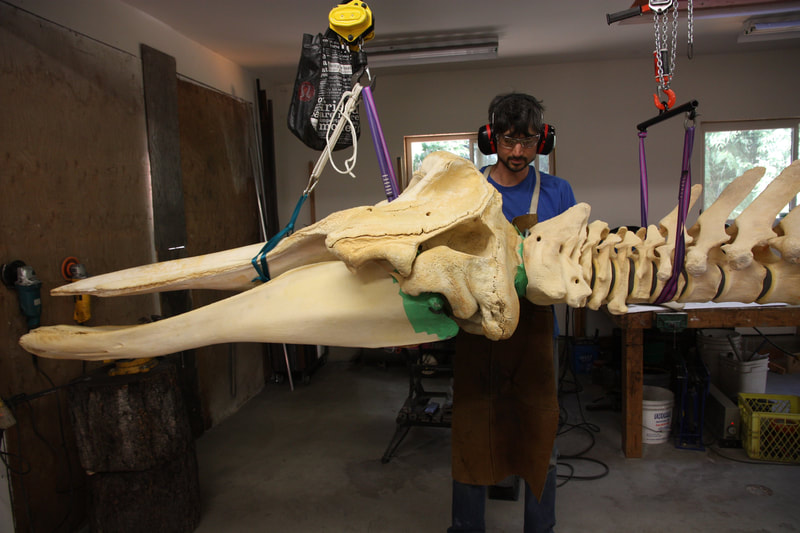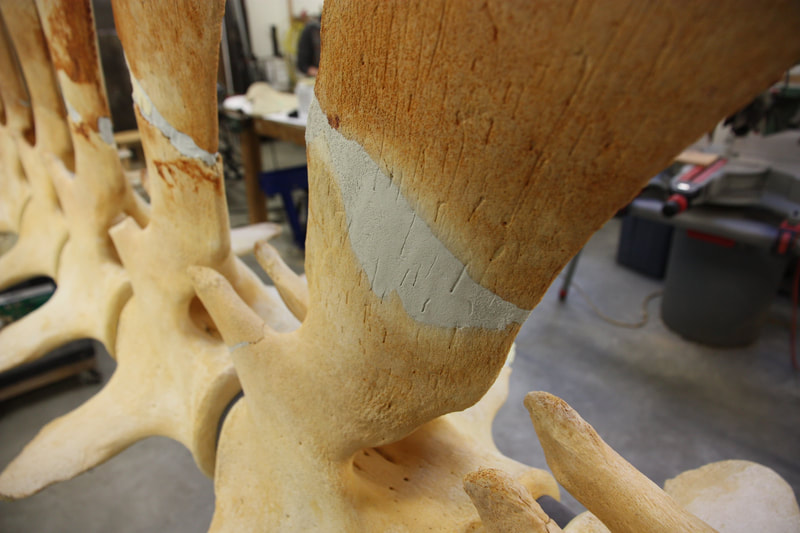diving baird's beaked whale
Seattle, Washington
In 2015, a 11.7m Baird's beaked whale was found deceased on a beach near Seattle. The Burke Museum's Mammalogy Collections Manager Jeff Bradley (seen below) and his team from the University of Washington did the heavy work of recovering its skeleton, burying it on the beach then collecting it and removing most of the soft tissues. However, sections of the skeleton were quite damaged and all the bones were discoloured and greasy after its cold and wet burial.
When the New Burke Museum on the University of Washington campus was being developed, Cetacea was awarded the job of preparing this skeleton for display. So, after hot vapour degreasing, a careful peroxide treatment and a consolidation step we set to work repairing the damage and restoring this beautiful skeleton to its natural state.
Baird's beaked whales are the largest of all beaked whales and are rarely seen in inshore waters. They are formidable predators, making long and deep dives, feeding on squid, octopus, open ocean and deep sea fish and crustaceans. This skeleton can be seen in a deep rolling dive, suspended above a winding stairwell in the museum. It floats through the space with jaws slightly parted, perhaps just closing after a successful chase.
Learn more about the project here...

